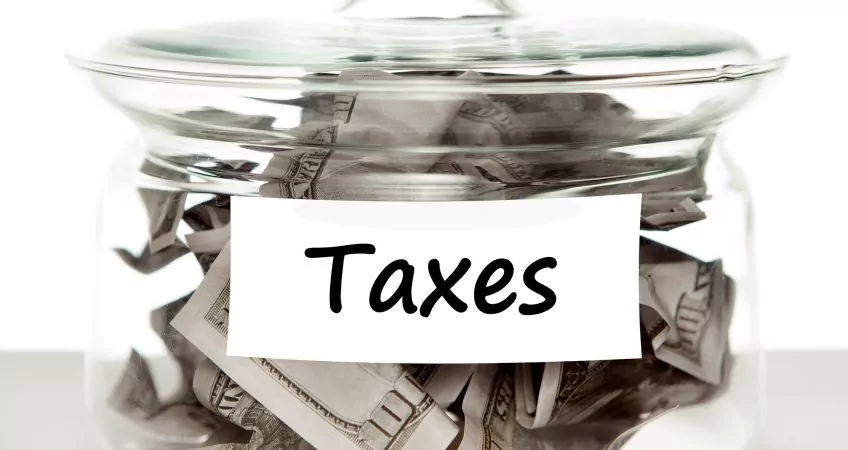
Offshore Tax-Filing
Yes, Tax Code Is Tiresome, But The Benefits Of Being Tax-Efficient Are Big
A U.S. friend trying to figure out his tax situation after moving overseas recently used the word “tiresome” to explain his position on U.S. taxes offshore.
Specifically, he was referring to all the forms he now may or may not need to file. Does he meet the threshold for filing the FBAR and Form 8938? If so, what is he required to report on which form? What other forms should he be considering?
In this case (as I’m familiar with my friend’s situation), the U.S. form requirements are fairly straightforward. My friend is working for a U.S. company outside the United States. He should be completing Form 2555 (or possibly 2555-EZ) to claim his Foreign Earned Income Exclusion (FEIE). And, yes, he should be filing an FBAR and Form 8938 each year. He’ll use Form 1116 to claim a foreign tax credit. He doesn’t have any offshore structures so he’s off the hook for the forms required for corporations and trusts.
If you are someone who prefers to prepare your own tax return each year, you can continue to do so after moving overseas. TurboTax walks you through all of the forms required of Americans living, working, and investing overseas—with the exception of the entity forms that you may need to complete if you have offshore corporations or trusts. To prepare your own return as an American abroad, you’ll need some understanding of the underlying concepts for the FEIE, the Housing Exclusion if you qualify, and Form 8938 to make sure you’re completing the screens correctly in TurboTax. It shouldn’t take much of an investment of your time to get up-to-speed on those things, and doing your own tax return can save you thousands of dollars when you move overseas.
The Real Cost Of Doing Taxes Abroad
Most people I speak with living overseas and paying to have their taxes prepared are spending between US$1,000 and US$3,000 each year. At the upper end, that fee includes a Form 5471 for an offshore corporation.
Beyond the cost is the difficulty in finding a tax preparer who really knows his stuff when it comes to the filing for expats and people with offshore entities. Your typical tax preparer or CPA in the United States isn’t going to understand the relevant forms much less the thinking behind how to fill them out correctly.
Working with someone who doesn’t know what he’s doing can cost you big time, not only in terms of the fee the guy charges you, but also because of the risk that he’s mis-filing on your behalf. Over the summer, I reviewed the tax returns of an American who has been living outside the States for many years. She owns and operates a resort business in a foreign location. She has had this business for close to a decade and was on her second tax accountant when she finally contacted me earlier this year for help. The first guy disappeared on her. Unfortunately, neither he nor the guy the lady was using until I met with her understood the U.S. tax code as it relates to Americans abroad. As far as I could tell, the second one simply copied what the first one had been doing.
The way these guys were preparing the lady’s return wasn’t incorrect. However, it was also not the most tax-efficient approach. The resort in question is operated by a local corporation that pays local taxes on the corporate profits and that pays the lady a salary, on which she, too, is paying local taxes. Unfortunately, both tax preparers were putting all this foreign corporate income on a Schedule C filed with the woman’s 1040 form.
Without going into further tiresome details, this means the woman was paying Social Security taxes in the United States that she didn’t need to pay (she was also paying social charges in the country where she is living and earning the income). Further, reporting the corporate income on the Schedule C (rather than on Form 5471) also has meant that she has been losing much of her Foreign Earned Income Exclusion.
U.S. tax code is so complex that you often have options for how to report income and expenses based on the larger context of the situation. The challenge is to understand the options well enough to be able to choose the one that will give you the best outcome—that is, that will have you paying the least tax possible.
Taking the most beneficial option under IRS regulations isn’t tax evasion. It’s using the rules to minimize your tax burden.
I was able to direct the resort owner I met with earlier this year to make changes in how she reports her income to minimize her U.S. tax bite. Going forward, she’ll be much more tax-efficient. And, for the American overseas, tax-efficient is good.
Lief Simon
Mailbag
“Lief, I have documentation for my mother’s prior citizenship based on her birth in Poland; however, that isn’t the climate I’m interested in. Since Poland is part of the EU, can I get an EU passport based on heritage and live in another EU country?
“Thanks to you and your team for all of the great information and resources you provide!”
C.B.
Some restrictions were put in place on new EU-entry countries so they wouldn’t flood older members of the union with people looking for work. I believe these applied to Poland but have since expired. This, though, would be something to double-check.
However, if you’re not looking to work, you should be fine, yes, to obtain citizenship for Poland as a means to being able to reside full-time in any other EU-member country.



